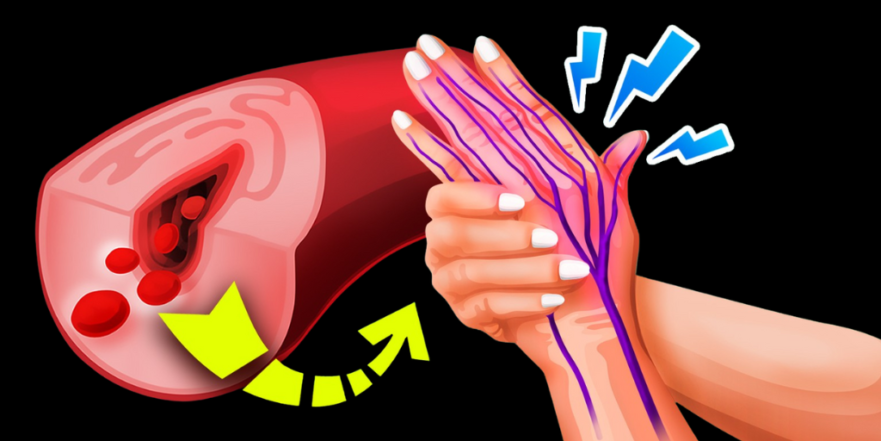➡️7. Vision Disturbances

While less common, a severe and prolonged B12 deficiency can damage the optic nerve, which transmits visual information from your eyes to your brain. This can lead to disturbing vision changes, such as blurriness, double vision, shadows, or fuzzy spots in your field of vision. This condition, called optic neuropathy, is serious. It underscores how critical B12 is for the entire nervous system, including the delicate nerves responsible for your sight.
➡️6. Unexplained Weight Loss

If you’re losing weight without trying, it could be linked to a B12 deficiency. This often happens as a secondary effect of other symptoms. For example, the glossitis mentioned earlier can make eating painful and alter the taste of food, leading to a reduced appetite. Nausea and other digestive issues can also accompany a deficiency, causing you to eat less and subsequently lose weight.
➡️5. Problems with Balance and Coordination

Do you find yourself stumbling more often or feeling unsteady on your feet? The nerve damage caused by a long-term B12 deficiency can affect your proprioception—your body’s sense of its own position in space. This can lead to problems with balance and coordination, making you feel clumsy or wobbly. This symptom is particularly concerning because it increases the risk of falls, especially in older individuals.
➡️4. Tinnitus (Ringing in the Ears)

Experiencing a persistent ringing, buzzing, or hissing in your ears when there’s no external sound is known as tinnitus. While it has many potential causes, it can also be a neurological symptom related to the nerve damage from a B12 deficiency. If you develop tinnitus, especially in conjunction with other signs on this list, it’s another piece of the puzzle that might point toward a nutritional issue.
➡️3. Heart Palpitations

Feeling your heart beat too fast, flutter, or skip a beat can be alarming. These sensations, known as heart palpitations, can be a result of the anemia caused by B12 deficiency. To compensate for the reduced number of red blood cells, your heart has to work harder and beat faster to circulate oxygen throughout your body. This extra strain can lead to these irregular heartbeats.
➡️2. Shortness of Breath

Feeling breathless after minimal exertion, like walking across a room or up a short flight of stairs, is another classic symptom of anemia. Your body is struggling to get enough oxygen due to the lack of healthy red blood cells. Your lungs and heart work overtime to compensate, leaving you feeling winded and out of breath from activities that you used to handle with ease.
➡️1. Changes in Taste and Smell

Finally, a B12 deficiency can even affect your senses of taste and smell. Some people report a diminished sense of smell or notice that foods taste bland or different. This is another indirect neurological symptom, where the nerve pathways that process taste and smell are affected. This can further contribute to a poor appetite and a reduced enjoyment of food.
🎯Conclusion
As you can see, the signs of a Vitamin B12 deficiency are incredibly varied, ranging from the physical to the mental and emotional. Because many of these symptoms are non-specific and can be attributed to other causes, a deficiency is often missed. If several of these warning signs sound uncomfortably familiar, don’t ignore them. The good news is that a B12 deficiency is typically easy to diagnose with a simple blood test and can often be corrected with dietary changes or supplementation under a doctor’s guidance. Listen to your body, and don’t hesitate to speak with a healthcare professional to get the answers you need to feel your best.

